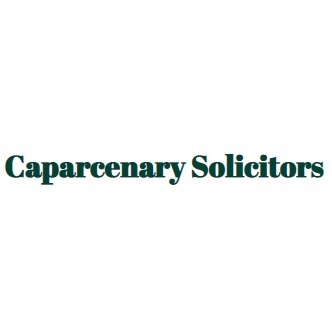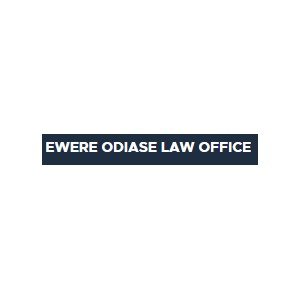Best Renewable & Alternative Energy Lawyers in Asaba
Share your needs with us, get contacted by law firms.
Free. Takes 2 min.
List of the best lawyers in Asaba, Nigeria
About Renewable & Alternative Energy Law in Asaba, Nigeria
Renewable and alternative energy is increasingly important in Asaba, the capital city of Delta State, Nigeria. With growing concerns about climate change and the need for sustainable energy solutions, there is a push towards the development and use of renewable resources such as solar, wind, hydro, and biomass. The Nigerian government, both at the federal and state levels, is implementing regulations and incentives to encourage energy diversification and reduce reliance on fossil fuels. In Asaba, many projects and policies aim to promote alternative energy solutions for both residential and commercial purposes. The legal landscape is evolving, with a focus on fostering investment, ensuring compliance, and protecting the rights of all stakeholders involved in renewable energy ventures.
Why You May Need a Lawyer
There are several situations where an individual or business might need legal support related to renewable and alternative energy in Asaba:
- Starting a renewable energy project, such as installing solar panels or operating a biomass plant
- Navigating government permits and regulatory compliance
- Negotiating contracts with suppliers, installers, or power purchasers
- Financing and investment structuring for renewable energy projects
- Managing land use and zoning issues for energy installations
- Addressing environmental impact assessments and regulatory approvals
- Dealing with disputes or litigation related to project development or energy sales
- Ensuring compliance with health, safety, and environmental standards
- Understanding and leveraging government incentives, subsidies, or energy credits
A lawyer with experience in renewable and alternative energy law can provide valuable guidance to help navigate complex regulations, avoid costly mistakes, and secure favorable agreements.
Local Laws Overview
The legal framework for renewable and alternative energy in Asaba includes a combination of federal, state, and local regulations. Some of the main legal instruments and areas of focus are:
- National Electric Power Policy: Sets the foundation for the Nigerian electricity sector reform, encouraging private sector participation and renewable energy adoption.
- Electric Power Sector Reform Act, 2005: Governs the generation, transmission, distribution, and trading of electricity, with specific provisions related to renewable projects.
- Nigerian Energy Policy: Promotes the use of renewable sources and outlines government plans for energy diversification.
- Nigerian Electricity Regulatory Commission (NERC) Regulations: Provides guidelines on licensing, safety standards, tariffs, and renewable energy integration.
- Delta State Renewable Energy Initiatives: Local policies and incentives may be offered to attract investment and encourage the development of green energy.
- Environmental Impact Assessment (EIA) Act: Requires environmental assessments for certain energy projects, to minimize adverse impacts.
- Land Use Act: Regulates land acquisition and use, which is crucial for siting energy infrastructure.
Understanding these laws is essential for anyone looking to develop, invest in, or operate renewable energy projects in Asaba. Non-compliance can lead to legal penalties, project delays, or loss of investment.
Frequently Asked Questions
What types of renewable energy are commonly used in Asaba?
The most common renewable energy sources in Asaba include solar power, small-scale hydropower, and biomass. Solar is particularly popular due to the region's abundant sunlight.
Do I need a permit to install solar panels on my property?
Yes, depending on the scale and location of your installation, you may need permits or approvals from relevant government agencies or your local council. It is important to consult with an expert to ensure compliance.
Are there government incentives for renewable energy projects in Asaba?
Yes, federal and state governments offer various incentives, such as tax breaks, import duty waivers, and grants for renewable projects. The specifics can change, so it is important to check current policies.
What are the main regulatory bodies for renewable energy in Asaba?
Key regulatory bodies include the Nigerian Electricity Regulatory Commission (NERC), the Rural Electrification Agency (REA), and relevant Delta State ministries and agencies.
How are energy tariffs set for renewable projects?
Tariffs for electricity generated from renewable sources are regulated by NERC, which occasionally publishes feed-in tariffs or guidelines for negotiation between power producers and purchasers.
Is an Environmental Impact Assessment required?
Yes, for most medium and large-scale renewable energy projects, an Environmental Impact Assessment (EIA) is a legal requirement before construction and operation.
Can I sell excess electricity I generate to the grid?
Under certain programs and regulations, private individuals or companies may sell excess electricity to the national grid or mini-grid operators, subject to obtaining the necessary licenses and agreements.
What legal challenges are common in renewable energy projects?
Common legal challenges include land disputes, delays in obtaining permits, regulatory compliance issues, contractual disagreements, and disputes over compensation or community relations.
How do I protect my investment in a renewable energy project?
Working with a qualified lawyer can help draft robust contracts, secure necessary permits, ensure regulatory compliance, and manage risks associated with your investment.
Where can I find qualified lawyers in renewable energy law in Asaba?
You can contact the Nigerian Bar Association (Asaba Branch) or professional law firms that specialize in energy law. Government agencies and business associations may also provide referrals.
Additional Resources
- Nigerian Electricity Regulatory Commission (NERC)
- Rural Electrification Agency (REA)
- Delta State Ministry of Energy
- Nigerian Renewable Energy Association
- Energy Commission of Nigeria
- Nigerian Investment Promotion Commission (NIPC)
- Nigerian Environmental Society
- Nigerian Bar Association (Asaba Branch)
Next Steps
If you need legal assistance for renewable or alternative energy matters in Asaba, start by gathering all relevant documents regarding your project or issue. Make a note of your key questions and objectives. Next, reach out to a lawyer or law firm with experience in renewable energy law, or contact your local branch of the Nigerian Bar Association for recommendations. Consultations with a legal professional will help you understand your rights, obligations, and available options. Finally, stay informed about changes in policies and regulations that may affect your interests in this sector.
Lawzana helps you find the best lawyers and law firms in Asaba through a curated and pre-screened list of qualified legal professionals. Our platform offers rankings and detailed profiles of attorneys and law firms, allowing you to compare based on practice areas, including Renewable & Alternative Energy, experience, and client feedback.
Each profile includes a description of the firm's areas of practice, client reviews, team members and partners, year of establishment, spoken languages, office locations, contact information, social media presence, and any published articles or resources. Most firms on our platform speak English and are experienced in both local and international legal matters.
Get a quote from top-rated law firms in Asaba, Nigeria — quickly, securely, and without unnecessary hassle.
Disclaimer:
The information provided on this page is for general informational purposes only and does not constitute legal advice. While we strive to ensure the accuracy and relevance of the content, legal information may change over time, and interpretations of the law can vary. You should always consult with a qualified legal professional for advice specific to your situation.
We disclaim all liability for actions taken or not taken based on the content of this page. If you believe any information is incorrect or outdated, please contact us, and we will review and update it where appropriate.











